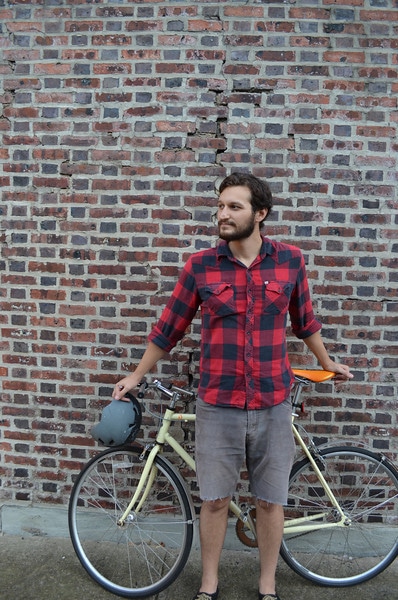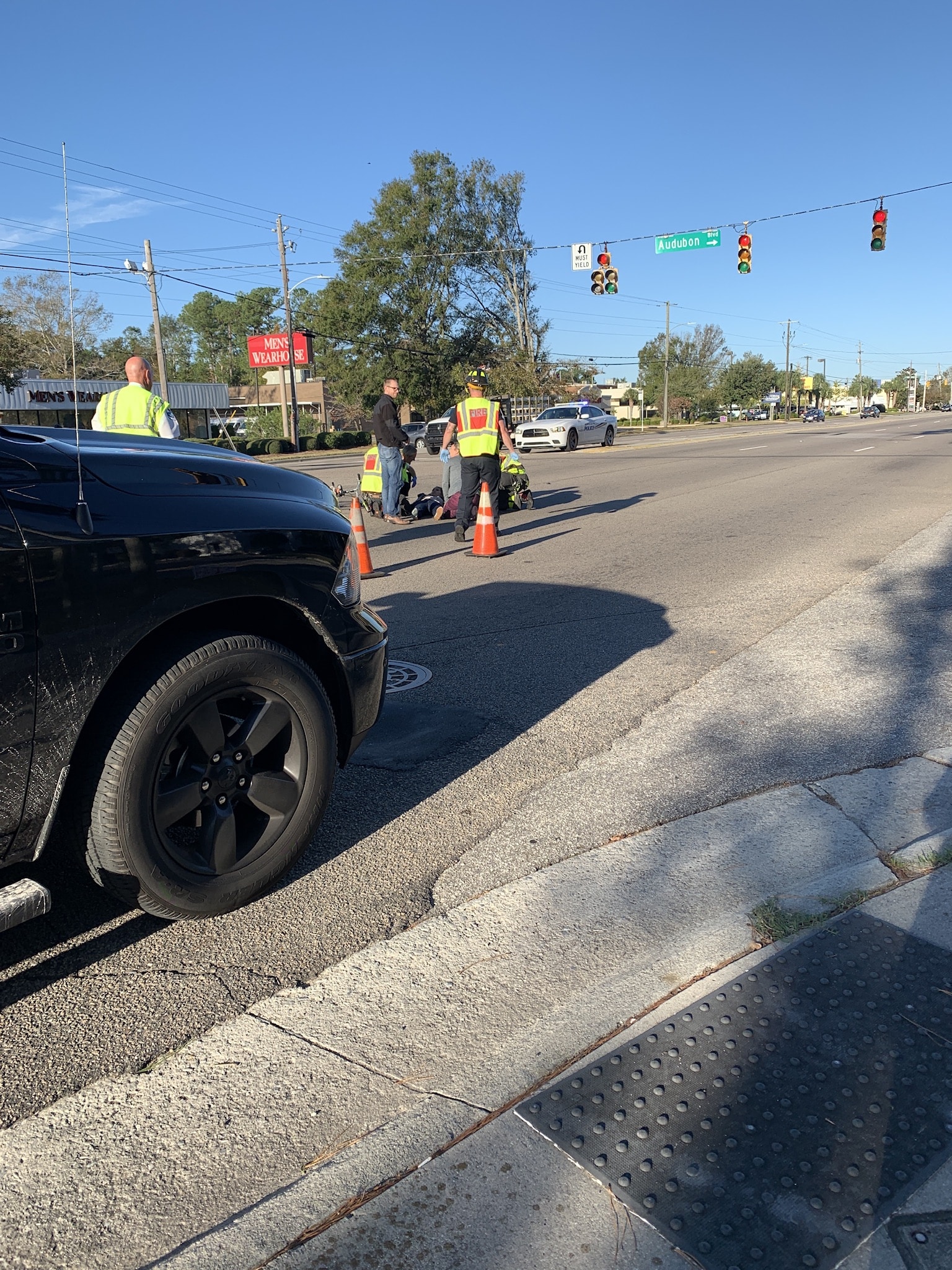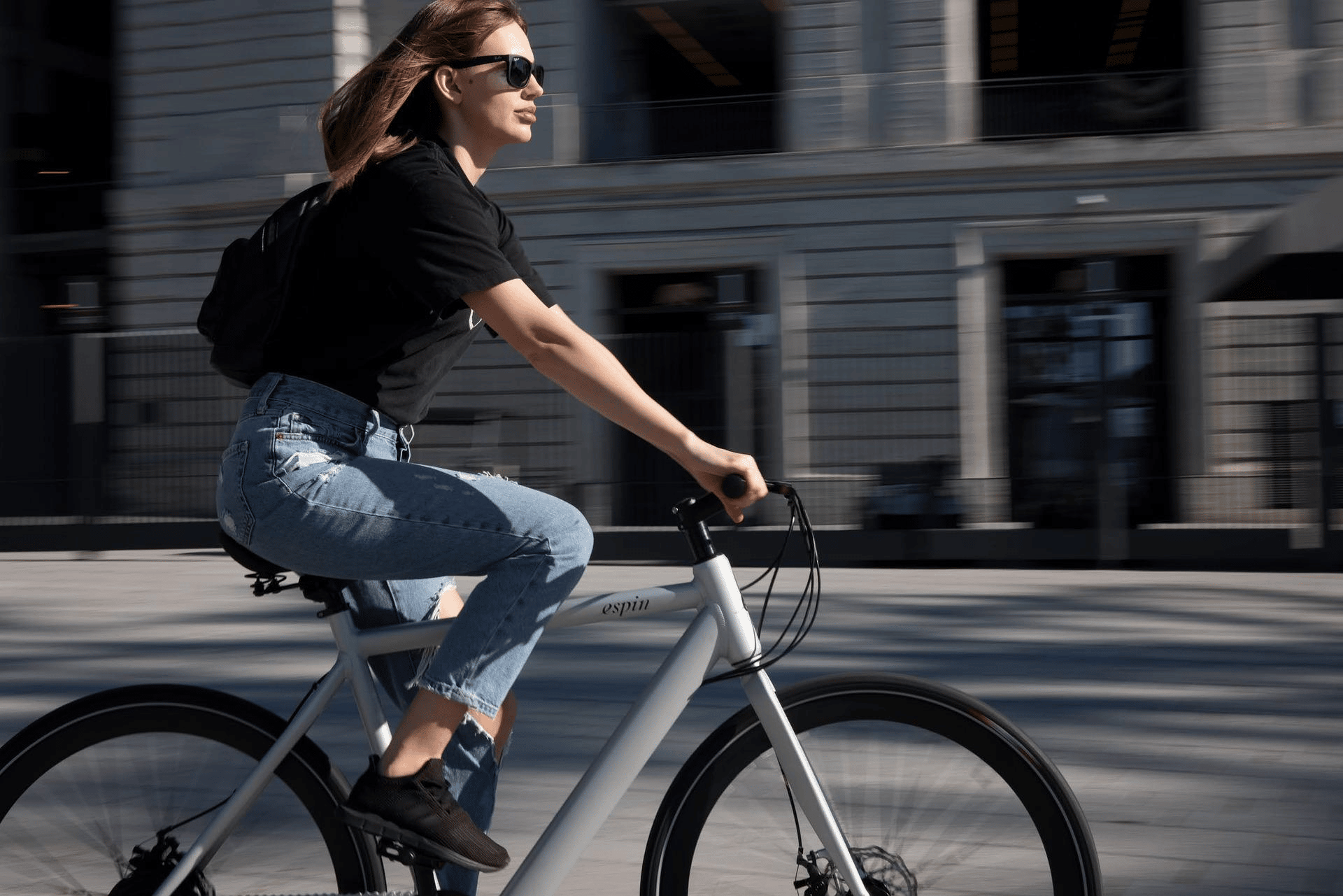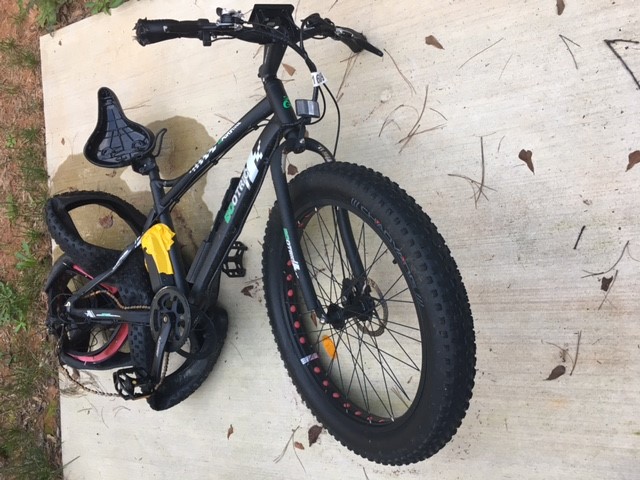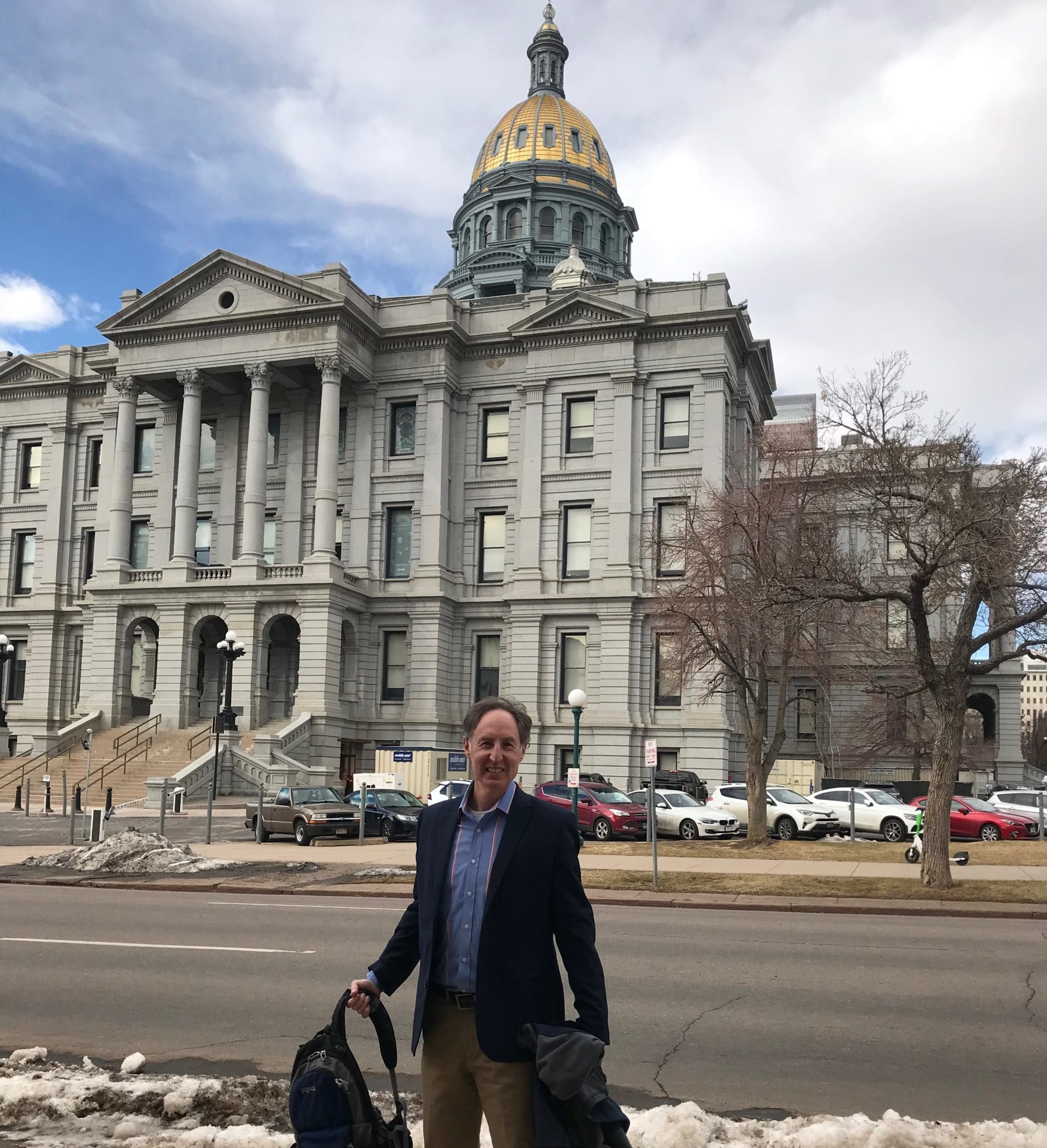Bike Law PA‘s Joe Piscitello sits down with Randy LaBasso to learn more about his work promoting better and safer biking for all.
JOE: Randy, can you tell us about your role at the Bicycle Coalition of Greater Philadelphia?
RANDY: Sure. I am the Policy Director for the Coalition which is an advocacy group that has been around since 1972. We advocate for better and safer cycling in Philadelphia and nine surrounding regions. As Policy Director, I lead advocacy campaigns.
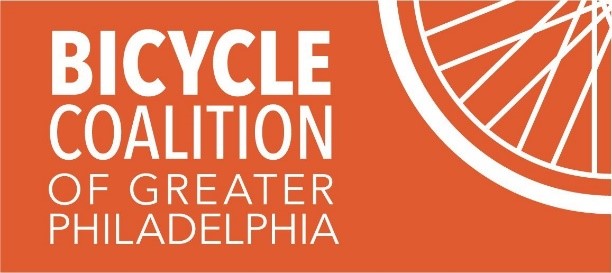
JOE: What did you do before BCGP?
RANDY: I was a reporter at the Philadelphia Weekly mostly focusing on local politics. I did a big cover story called “The Naked Truth about Cycling” which included photos from the famous Philly Naked Bike Ride. That work eventually led me to focusing on transportation issues.
Bicycle Coalition & Recovery Streets
JOE: Can you tell us how Recovery Streets Initiative is different from Vision Zero?
RANDY: I’ll start with Vision Zero. Vision Zero is a series of policies aimed to drive down traffic fatalities to zero within a given time-period. The policies focus on the four “E’s” of engineering, education, encouragement, and enforcement. In Philadelphia we have been working on protected bike lanes – which have been proven to make streets safer for pedestrians and cyclists. The City of Philadelphia and SEPTA are supportive of these initiatives. Philadelphia Mayor Jim Kenney has created an Office of Vision Zero with the pledge to reach zero traffic deaths by 2030.
Recovery Streets is a new initiative we worked on with other partner organizations. Once COVID started, many gathering places closed like playgrounds and parks, in addition to a decrease in auto traffic on the roads. So, we decided to create a platform that utilizes our streets to Recover from the devastation caused by COVID. First thing we did was to get the city to shut down Martin Luther King Drive to car traffic. The city wide COVID shut down was March 16 and by about March 25 we created a petition to close MLK to traffic. I reached out to Councilmember Curtis Jones Junior who oversees that district. By end of the month, the Mayor agreed, and the City made MLK an open area to cyclists/pedestrians.

JOE: Thank you Randy and the Coalition for your work in getting MLK Drive shut down to car traffic. We all owe your organization a debt of gratitude for this accomplishment and people should become members of the Coalition! Can you tell us about the upcoming Recovery Streets event on August 26 – what is the goal?
RANDY: The Coalition is working on Recovery Streets along with other organizations including Feet First Philly, Clean Air Council, and 5th Square. Our hope is to create viable open spaces in surrounding parts of Philadelphia to support economic recovery as well as to increase safe spaces to ride and walk.
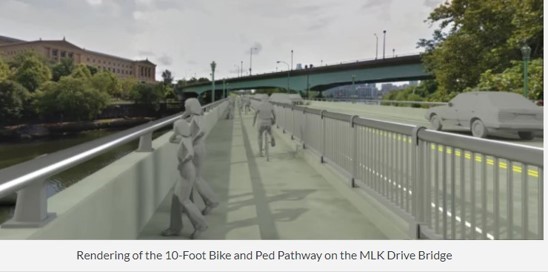
JOE: Let’s talk more about MLK Drive and the Bridge. What does the future hold for the Drive?
RANDY: MLK Drive Bridge will be paved soon. BCGP recommended widening the path to 12 feet and to also remove one lane of auto traffic near Eakins Oval. This project is something that we have been advocating for – for years. The City doesn’t have concrete plans to bring cars back to MLK Drive but it’s hard to know what will happen once COVID has resolved.
Bicycle Coalition & Speed Cameras
JOE: There’s been a surge in road tragedies in recent months. As a bicycle accident lawyer and a member of the Bike Law Network, I am very in touch and concerned about bike safety. As you know, within just a 3 weeks period in the summer, four people lost their lives while riding bikes. Can you talk about what we are trying to do about this dangerous trend?
RANDY: One thing that we have said from the beginning of COVID is that the impact of fewer cars on the roads will be speeding. And in fact, that’s exactly what we are seeing. If a driver is going 20 mph and hits a person in the road, the odds of that person dying is about 10% If a driver is going 60 mph and hits a person in the road, the odds of that person dying is 90%.
JOE: And isn’t this the reason why we need traffic calming measures to slow down traffic?
RANDY: Exactly.
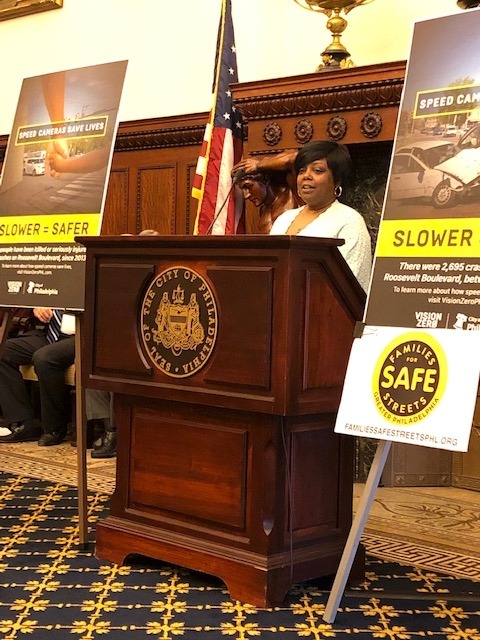
JOE: Automated Speed Cameras seem to be controversial because some people resist having “Big Brother” watching us on the roads. Can you talk about their role and the need?
RANDY: Roosevelt Blvd is basically a huge 12 lane highway that residents must cross throughout the day and evening to get from one side to the other. It is a High Injury Road with a disproportionate amount of injuries and fatalities, particularly for people of color. Speed cameras have been shown to slow down traffic. NYC has speed cameras all over and their impact has led to a decrease in speeding. Also, Roosevelt Blvd needs to be re-engineered, but that effort needs to be funded.
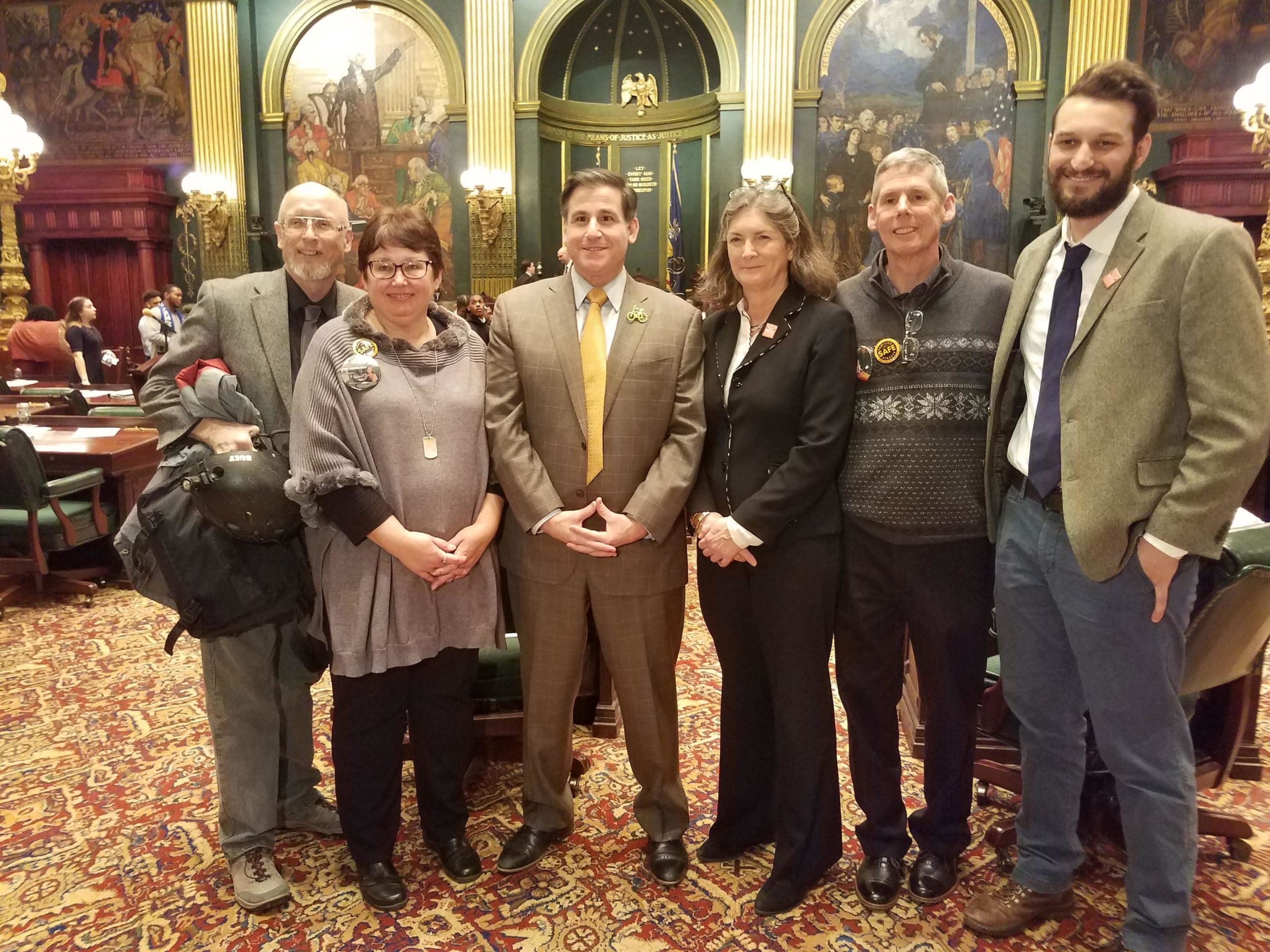
Bicycle Coalition and Protected Bike Lanes
JOE: Can we talk about Parking Protected Bike lanes?
RANDY: We are starting to see these protected bike lanes be installed in Philadelphia. However, the PA Vehicle Code does not allow cars to park more than 12 inches from the curb. In the scenario where there is a parking protected bike lane, the vehicle is technically parking 10 feet from the curb. PENN DOT (Department of Transportation) does not allow the definition of a curb to be bollards or painted lines on the road. PENN DOT owns 30% of all streets in Philadelphia and they refuse to install parking protected bike lanes on their roads.
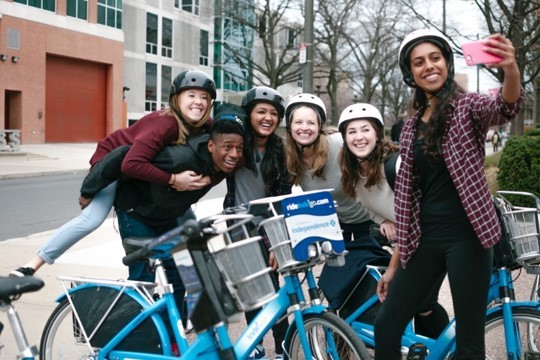
We have been working with Senator Larry Farnese to fix this issue with the PA Vehicle Code. A proposed bill has gone through the House and three PA Senate Committees; we are working to get this bill passed before the year end.
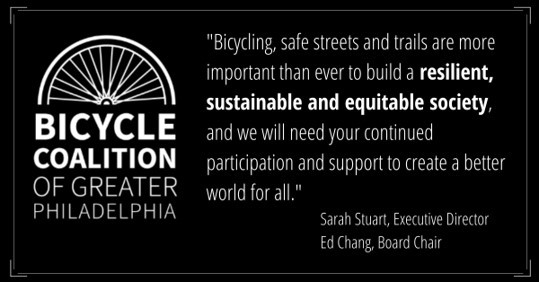
Bicycle Coalition & Diversity
JOE: Our last topic we want to cover deals with diversity and inclusion in the cycling community. What has BCGP been doing to address that issue?
RANDY: In 2015, Indego Bike Share launched in Philadelphia to increase access to bikes. We worked with People for Bikes and The William Penn Foundation to ensure that these stations and bikes were available to communities with People of Color. Brenda Torres of BCGP has been leading the effort to get communities more comfortable with bikes. Especially with the addition of E-Bikes to the fleet, we are seeing that more people are riding these bikes and engaging.
JOE: Randy, we sincerely appreciate what the Coalition does for cycling, and specifically your leadership in pushing these road safety initiatives forward. On behalf of the Piscitello Law firm, all of us at Bike Law, and the cycling community, Thank you Randy!
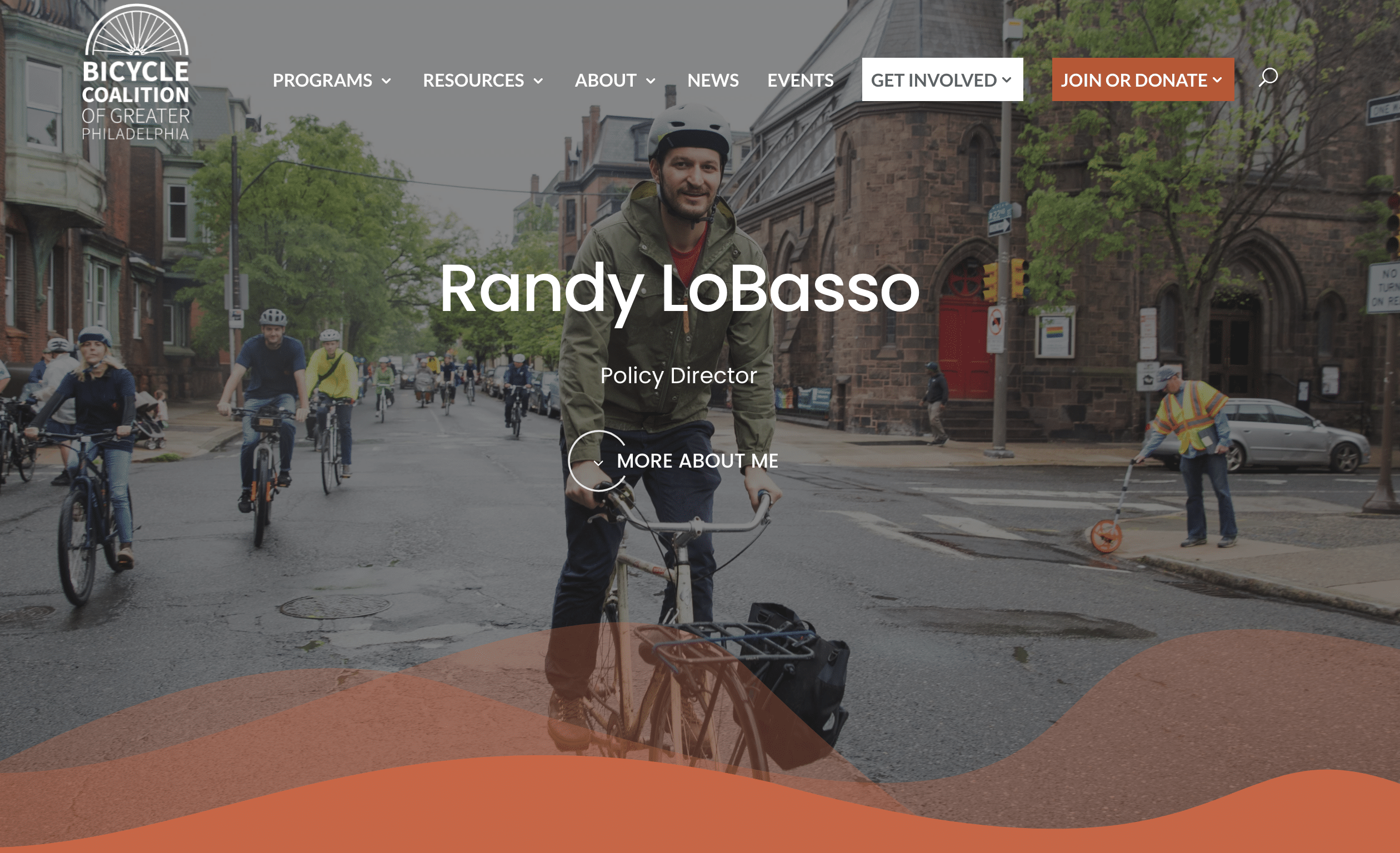
RANDY: Likewise. I appreciate what your firm does to support the cycling community and to help people who are unfortunately hurt on our roads.



